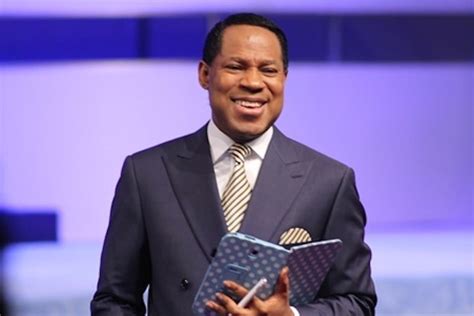A Quote by William James
On pragmatistic principles, if the hypothesis of God works satisfactorily in the widest sense of the word, it is true.
Quote Topics
Related Quotes
The first objection to Darwinism is that it is only a guess and was never anything more. It is called a "hypothesis," but the word "hypothesis," though euphonious, dignified and high-sounding, is merely a scientific synonym for the old-fashioned word "guess." If Darwin had advanced his views as a guess they would not have survived for a year, but they have floated for half a century, buoyed up by the inflated word "hypothesis." When it is understood that "hypothesis" means "guess," people will inspect it more carefully before accepting it.
Even if matter could do every outward thing that God does, the idea of it would not work as satisfactorily, because the chief callfor a God on modern men's part is for a being who will inwardly recognize them and judge them sympathetically. Matter disappoints this craving of our ego, so God remains for most men the truer hypothesis, and indeed remains so for definite pragmatic reasons.
This constitution we designate by the word genotype. The word is entirely independent of any hypothesis; it is fact, not hypothesis that different zygotes arising by fertilisation can thereby have different qualities, that, even under quite similar conditions of life, phenotypically diverse individuals can develop.
There are certain basic principles regarding the proper role of government. If principles are correct, then they can be applied to any specific proposal with confidence... The true statesman values principle above popularity, and works to create popularity for those political principles which are wise and just.
Mr. Darwin's hypothesis is not, so far as I am aware, inconsistent with any known biological fact; on the contrary, if admitted, the facts of Development, of Comparative Anatomy, of Geographical Distribution, and of Palaeontology, become connected together, and exhibit a meaning such as they never possessed before; and I, for one, am fully convinced that if not precisely true, that hypothesis is as near an approximation to the truth as, for example, the Copernican hypothesis was to the true theory of the planetary motions.
How can this strange story of God made flesh, of a crucified Savior, of resurrection and new creation become credible for those whose entire mental training has conditioned them to believe that the real world is the world which can be satisfactorily explained and managed without the hypothesis of God? I know of only one clue to the answering of that question, only one real hermeneutic of the gospel: a congregation which believes it.
[Coining phrase "null hypothesis"] In relation to any experiment we may speak of this hypothesis as the "null hypothesis," and it should be noted that the null hypothesis is never proved or established, but is possibly disproved, in the course of experimentation. Every experiment may be said to exist only in order to give the facts a chance of disproving the null hypothesis.
Tormented by conflicting feelings, I appealed to reason ; and it is reason which, amid so many dogmatic contradictions, now forces the hypothesis upon me. A priori dogmatism, applying itself to God, has proved fruitless: who knows whither the hypothesis, in its turn, will lead us? I will explain therefore how, studying in the silence of my heart, and far from every human consideration, the mystery of social revolutions, God, the great unknown, has become for me an hypothesis, I mean a necessary dialectical tool.








































